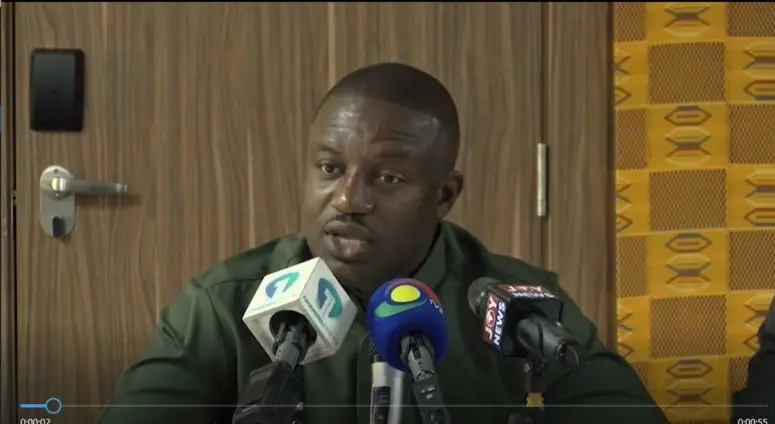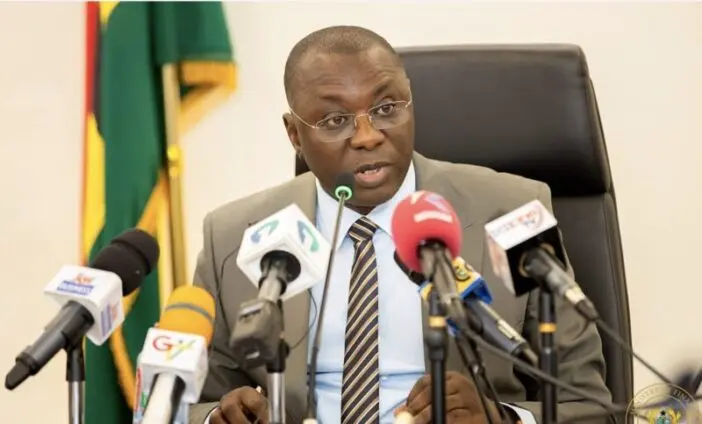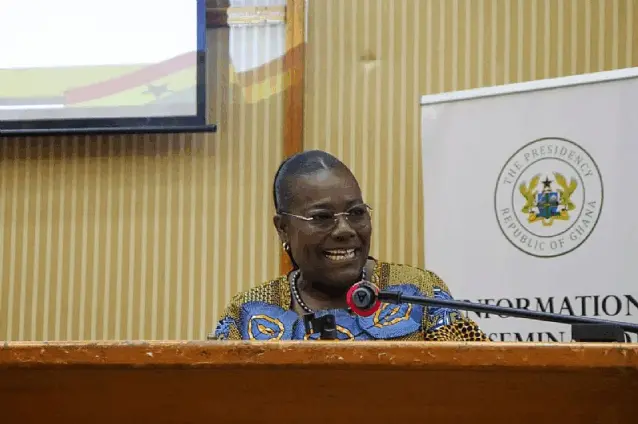Recent discussions surrounding the proceedings involving Chief Justice Gertrude Torkornoo have ignited a debate about transparency and the public’s right to know. However, Ghana’s Constitution mandates in-camera (private) hearings in certain cases, a provision that has drawn both support and scrutiny. Abraham Amaliba, a leading member of the NDC and a private legal practitioner, recently weighed in on this contentious issue during an interview on *PM Express* on JoyNews. His insights shed light on why the Constitution stipulates these private hearings, emphasizing the precedence of constitutional law over individual preferences. This article delves into Amaliba’s arguments, exploring the constitutional mandate for in-camera proceedings, the dangers of setting precedents based on individual desires, and the national security concerns that underpin this legal framework. Understanding the basis for these proceedings is crucial for informed discourse about the rule of law in Ghana, particularly concerning the role of the Chief Justice.
The Constitutional Mandate for In-Camera Proceedings
In legal terms, “in-camera” refers to proceedings held in private, excluding the public and press. Ghana’s Constitution mandates such hearings in specific scenarios, a point strongly emphasized by Abraham Amaliba. He argues that the Constitution’s stipulations take precedence, even over the Chief Justice’s own inclinations. As Amaliba stated plainly, “The CJ may want it televised, but the Constitution knows better.”
This raises a fundamental question: why does the Constitution, the supreme law of the land, sometimes require secrecy? Amaliba’s perspective highlights the critical distinction between democratic ideals and the rule of law. He articulated this point by saying, “Democracy is different from what the law is. The law is not democracy. Democracy is not law. These are two different things.” In essence, while transparency is a cornerstone of democracy, adherence to established legal principles, as enshrined in the Constitution, remains paramount.
Setting Dangerous Precedents: The Risk of Ignoring Constitutional Principles
Amaliba cautions against setting precedents based on individual requests or popular sentiment, warning of a potential “slippery slope.” He argues that deviating from the Constitution’s explicit provisions could open the door to future abuses. “We can’t just say that we should allow the Supreme Court to do what it likes,” Amaliba asserted. “The Supreme Court is under the Constitution. It is not above it.” This underscores the principle that all institutions, including the judiciary, are bound by the Constitution’s dictates.
Furthermore, Amaliba suggests that the framers of the Constitution likely included the in-camera requirement for reasons beyond immediate public perception, potentially related to national security or other sensitive matters. “Maybe they thought that because of the position of the Chief Justice, some information, if leaked, may impact national security. Or public health. Or something else we don’t yet see,” he explained. This highlights the potential for certain information, if disclosed, to have far-reaching and detrimental consequences.
Distinguishing between established courtroom practice and constitutional law is also crucial. Amaliba emphasized this point, stating, “That was practice. This one is enshrined in the Constitution. It says the proceedings must be held in camera. That’s not negotiable.” This clarifies that while certain procedures may be customary in court, constitutional mandates are binding and cannot be disregarded based on preference.
Respecting the Constitution: A Foundation for Stability
Amaliba raises critical questions about the potential ramifications of altering constitutional provisions based on popular demand. “If we say the accused wants it public, and so it should be public, then what next? Should we also import judges from other countries to sit on it?” he asked rhetorically. These questions underscore the potential dangers of eroding the Constitution’s integrity by making exceptions based on transient public opinion.
Ultimately, Amaliba emphasizes the need to respect the Constitution’s explicit language. “We must respect the Constitution and its wording,” he stated. “The language of the Constitution is not vague. It is specific.” This underscores the importance of interpreting and applying the Constitution consistently, adhering to its clear and unambiguous directives regarding in-camera proceedings and the role of the Chief Justice.
In conclusion, Abraham Amaliba’s analysis underscores the constitutional mandate for private hearings in certain cases involving the Chief Justice. His arguments emphasize the importance of upholding the Constitution, even when it conflicts with popular sentiment or individual preferences. Respect for the rule of law and informed discussion are essential for maintaining stability and ensuring the integrity of Ghana’s legal system. The debate surrounding in-camera proceedings should, therefore, be grounded in a thorough understanding of the constitutional framework and the principles it is designed to protect.
Image Source: MYJOYONLINE





















